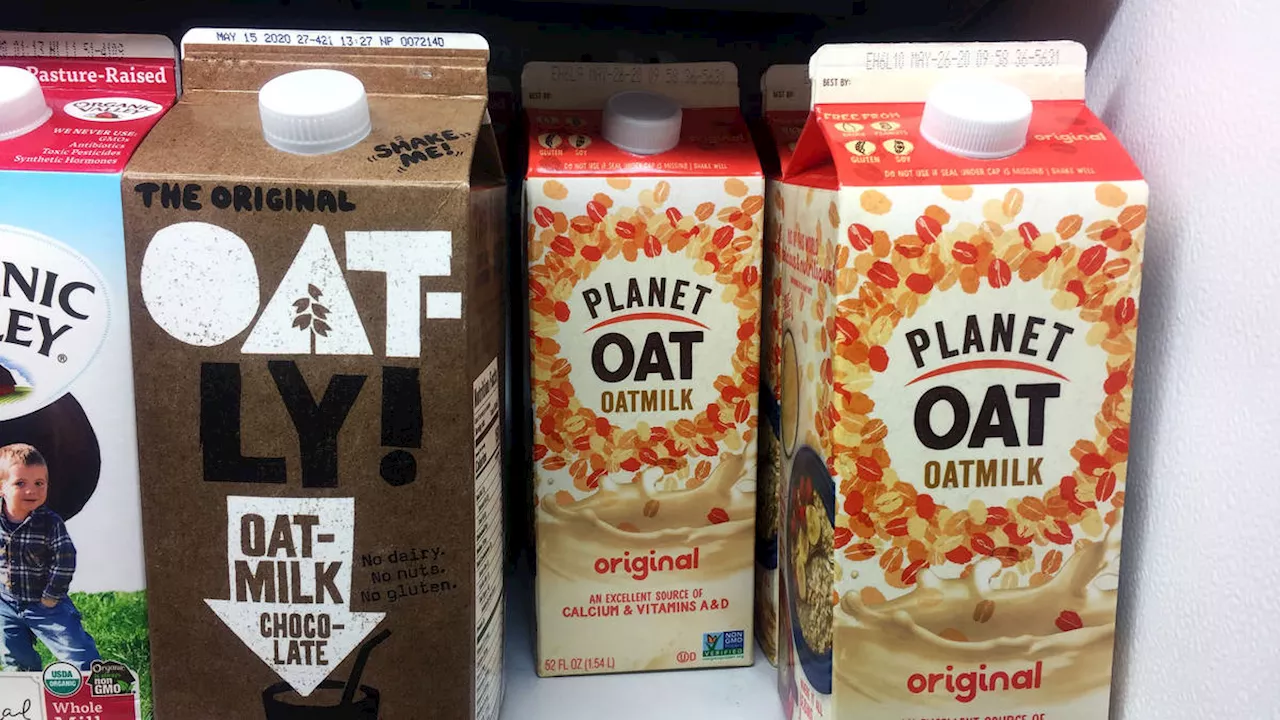Research suggests several everyday habits can lower the risk of bowel cancer, the second biggest cancer killer in the UK. These include consuming a daily glass of milk for its calcium content, maintaining a healthy weight, eating a balanced diet rich in whole grains, fruits, vegetables, beans, nuts, and seeds, limiting processed and red meat intake, staying physically active, particularly in the morning and evening, and practicing good oral hygiene.
Habits from a daily glass of milk to flossing can protect against the second biggest cancer killer in the UKwere reported to be rising more sharply among the under-50s in England than anywhere else in Europe. Changes in lifestyle, including the rise of obesity, processed food and sugar consumption, are thought to be part of the reason – but research is ongoing.
to speak to your GP. “In most cases it won’t be cancer, but if it is, spotting it early can make a real difference.” The timing of your peak exertion is also thought by some to play “a crucial role” in reducing bowel cancer risk. Being more active in the morning and evening was found byThey found two daily peaks in activity, at about 8am and 6pm, “were associated with reduced colorectal cancer risk, beyond the benefits of overall physical activity”.
BOWEL CANCER HEALTHY HABITS DIET EXERCISE ORAL HYGIENE
United Kingdom Latest News, United Kingdom Headlines
Similar News:You can also read news stories similar to this one that we have collected from other news sources.
 Negative Language in Doctor Handoffs Linked to Reduced Empathy and AccuracyA new study shows that when doctors and nurses use negatively biased language during patient handoffs, it can lead to decreased empathy and even less accurate recall of critical health information. The study, published in JAMA Network Open, highlights the potential impact of unconscious bias on patient care.
Negative Language in Doctor Handoffs Linked to Reduced Empathy and AccuracyA new study shows that when doctors and nurses use negatively biased language during patient handoffs, it can lead to decreased empathy and even less accurate recall of critical health information. The study, published in JAMA Network Open, highlights the potential impact of unconscious bias on patient care.
Read more »
 Moderate Wine Consumption Linked to Reduced Heart Attack RiskA new study suggests that moderate wine consumption, as part of a Mediterranean diet, may be more effective than statins in lowering the risk of heart attacks.
Moderate Wine Consumption Linked to Reduced Heart Attack RiskA new study suggests that moderate wine consumption, as part of a Mediterranean diet, may be more effective than statins in lowering the risk of heart attacks.
Read more »
 Cheese Consumption Linked to Reduced Sleep Apnea RiskA recent study suggests a potential connection between cheese intake and a lower risk of developing sleep apnea. Researchers analyzed data from over 400,000 individuals and found that those who consumed cheese had a 28% reduced likelihood of having sleep apnea compared to non-cheese eaters. The study also identified six specific biomarkers influenced by cheese consumption that may play a role in this protective effect.
Cheese Consumption Linked to Reduced Sleep Apnea RiskA recent study suggests a potential connection between cheese intake and a lower risk of developing sleep apnea. Researchers analyzed data from over 400,000 individuals and found that those who consumed cheese had a 28% reduced likelihood of having sleep apnea compared to non-cheese eaters. The study also identified six specific biomarkers influenced by cheese consumption that may play a role in this protective effect.
Read more »
 Urban Sprawl Linked to Reduced Economic Opportunity for Low-Income ResidentsRecent studies led by a University of Utah geographer reveal that urban sprawl may hinder intergenerational mobility for low-income residents and exacerbate racial inequality. Analyses of Census data show that individuals raised in high-sprawl neighborhoods have lower earning potential compared to those from denser areas. The studies also highlight difficulties in accessing jobs for adults living in sprawling neighborhoods. Researchers believe understanding this link can inform targeted policies to improve economic prospects for low-income individuals.
Urban Sprawl Linked to Reduced Economic Opportunity for Low-Income ResidentsRecent studies led by a University of Utah geographer reveal that urban sprawl may hinder intergenerational mobility for low-income residents and exacerbate racial inequality. Analyses of Census data show that individuals raised in high-sprawl neighborhoods have lower earning potential compared to those from denser areas. The studies also highlight difficulties in accessing jobs for adults living in sprawling neighborhoods. Researchers believe understanding this link can inform targeted policies to improve economic prospects for low-income individuals.
Read more »
 Dairy Milk Linked to Reduced Risk of Depression and AnxietyA new study suggests that consuming semi-skimmed dairy milk may be associated with a lower risk of depression and anxiety. Researchers found that participants who drank semi-skimmed milk were 12% less likely to experience depression and 10% less likely to experience anxiety compared to those who did not. Conversely, plant-based milk alternatives were linked to a 14% increased risk of depression.
Dairy Milk Linked to Reduced Risk of Depression and AnxietyA new study suggests that consuming semi-skimmed dairy milk may be associated with a lower risk of depression and anxiety. Researchers found that participants who drank semi-skimmed milk were 12% less likely to experience depression and 10% less likely to experience anxiety compared to those who did not. Conversely, plant-based milk alternatives were linked to a 14% increased risk of depression.
Read more »
 Milk Linked to Reduced Bowel Cancer Risk, Study FindsA new study suggests that drinking a glass of milk daily could significantly lower the risk of bowel cancer. Researchers analyzed data from over 542,000 women and found that calcium, abundant in milk, was associated with a 17% decrease in bowel cancer risk. The study also highlighted the link between alcohol consumption and increased bowel cancer risk.
Milk Linked to Reduced Bowel Cancer Risk, Study FindsA new study suggests that drinking a glass of milk daily could significantly lower the risk of bowel cancer. Researchers analyzed data from over 542,000 women and found that calcium, abundant in milk, was associated with a 17% decrease in bowel cancer risk. The study also highlighted the link between alcohol consumption and increased bowel cancer risk.
Read more »
